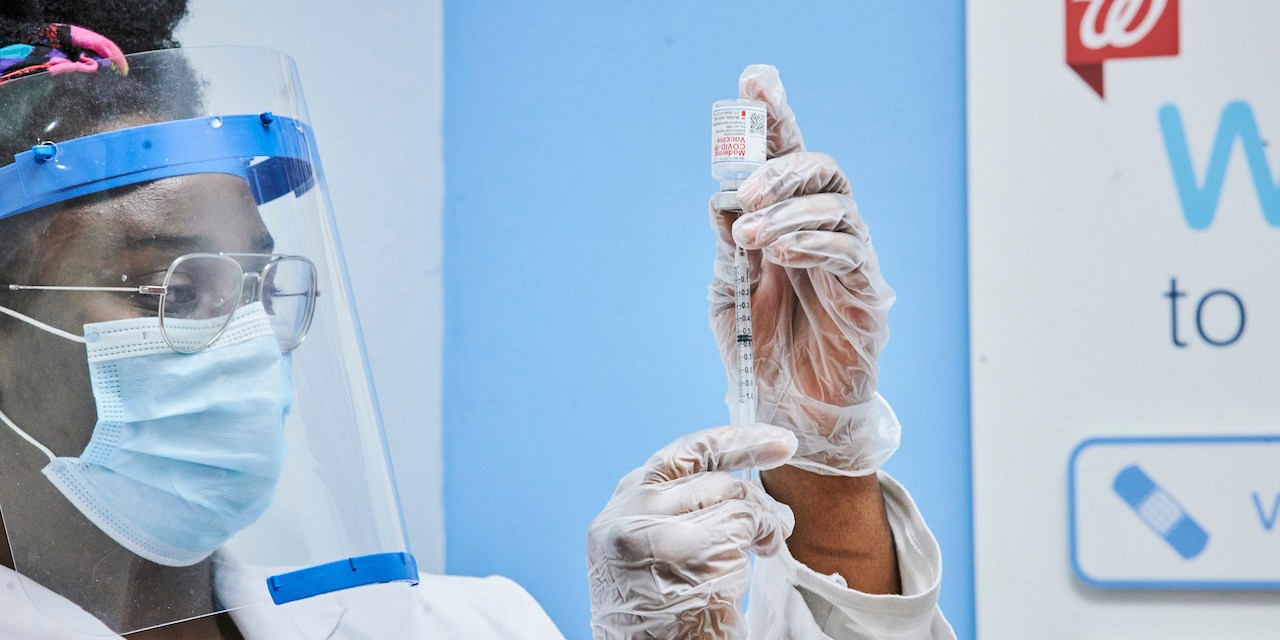Lower Covid-related demand takes a toll on Walgreens

Executives at Walgreens Boots Alliance expressed disappointment with the company’s earnings results due to a steep drop in Covid-related demand and consumer spending.
Walgreens administered 800,000 Covid-19 vaccines in the quarter, a 3% year-on-year decline, with testing also sharply dropping. Walgreens’ net income of $118 million in the third quarter dropped by 59% from the previous year, due to a $477 million operating loss. Adjusted earnings per share year-to-date declined 21.7% to $3.32, primarily due to a decline in Covid-19 contribution of around 20%.
“The third quarter did not meet our overall expectations, and we are disappointed to have to change our fiscal 2023 guidance,” CEO Rosalind Brewer, told investors and analysts during the company’s earnings call. “While we achieve good sales growth and return to adjusted earnings growth in the quarter, several dynamics created margin pressures that we are factoring into our full-year outlook.”
Just a few quarters ago over-the-counter test kits and vaccinations were helping Walgreens bump up its comp sales and in-store traffic. Now, Walgreens is beginning to take a hit from waning Covid-related demand alongside lower consumer spending the retail industry is experiencing overall. As a result, Walgreens has lowered its full-year earnings guidance as it anticipates these issues to persist into the next year.
When more people went to Walgreens to get vaccinated or tested, it had a direct positive impact on retail sales. This third quarter, however, retail sales declined 1% and comp sales declined 0.2%. On the bright side, third-quarter sales grew a solid 8.6% year-over-year to $35.4 billion, which reflects the sales growth of its U.S. pharmacy business, among other factors.
Walgreens’ pharmacy business showed strength this quarter with a 6.3% sales growth and a 9.8% rise in comp sales. Charles Lewis Sizemore, chief investment officer of Sizemore Capital, said this result comes as no surprise as pharmacies are somewhat resistant to economic challenges.
“This confirms the story that the consumer is looking a little bit tapped out right now,” Sizemore said. “They’re spending their money on necessities like prescription drugs, and they’re spending less on retail items. They’re having to pick and choose what they spend money on.”
Ad position: web_incontent_pos1
Walgreens continues to lean into health care. VillageMD, the primary-care provider controlled by Walgreens Boots Alliance, finalized its acquisition of urgent-care provider Summit Health-CityMD in January. In an attempt to further focus on its health care business and streamline operations, Walgreens also slashed corporate staff by around 10% in May.
As many people no longer view the coronavirus as a major health risk, Walgreens expects its headwinds from depleting Covid demand to continue. Additionally, with student loan payments restart in October, the retail industry as a whole could take a hit from people spending even less on discretionary items, said Brad Jashinsky, director analyst at Gartner. He said that if people hold off on health checkups due to financial constraints, it could hurt also Walgreens’ business.
“We surveyed about one in four U.S. consumers who reported postponing their plans for non-essential medical treatment,” Jashinsky said. “It could mean long-term less prescriptions being filled and a larger impact to Walgreens, CVS, and others out there.”
Walgreens revised its fiscal year 2023 adjusted earnings per share guidance to $4.00 to $4.05 from $4.45 to $4.65. For fiscal year 2024, it set a preliminary expectation of low- to mid-single-digit adjusted operating income growth. Next year, it expects operating income growth to be driven by its U.S. healthcare and U.S. retail pharmacy business.
“It’s not a big surprise,” Jashinsky said about Walgreens’ revised outlook. “There’s a lot of economic headwinds right now. Consumers continue to spend, but they’re spending in different areas.”

